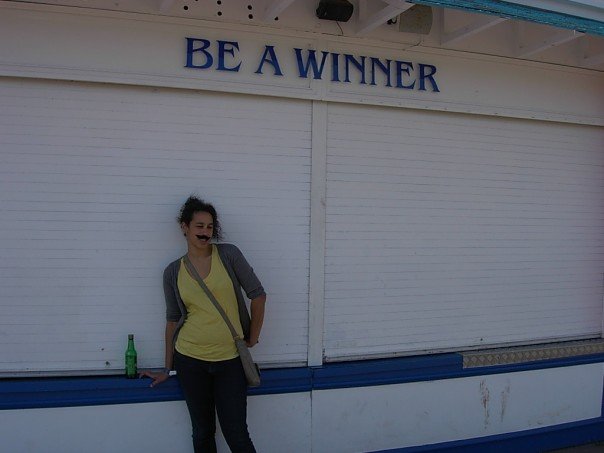Brno
Because I don't think anything deserves to be easy, when I'm 15 years old I fall for a Czech student who looks a bit like a cat. I first see him onstage, playing the piano in a threadbare suit. And, boom, this is it: little do I know that from now on my life is going to consist of falling in love with foreign men and moving to places in inexpert attempts to please them, although the whole point of foreigners, perhaps, is that you can't second-guess them, don't know how to please them.I write him letters. I phone him long-distance. He's bewildered, angry and kind by turns. The poor guy: he's unleashed a teenage monster, an emotional Godzilla ready to lay waste to the world. (But Europe is done with monsters.) The half-term holiday rolls around. I announce to my mother that I'm taking the coach from London to Brno.
I listen to Maria Callas on my walkman, driving through Antwerp in the rain. I have an adolescent sense of melodrama. I arrive, bleary-eyed, underslept, ungainly. I'm staying with my friend in a Communist-era apartment block. Love has brought me here! I wander around, not sure what to do. The love of my life is busy with his PhD, and probably horrified that I've arrived, although he's very polite about it. I sit in a church, half-heartedly admiring the architecture, and don't belong anywhere. Europe's churches are nothing to do with me.
The coach back to London is crowded. I'm forced to sit next to a Czech man who speaks hardly any English; we exchange our handful of words of each other's language, then sit carefully upright, giving each other space. The journey goes on forever. Night comes. When the stranger falls asleep, his head lolls onto my shoulder, and I let it rest there, not moving, adjusting my breath so it matches his. I can see my face in the black mirror of the coach window. There are many more years ahead of me in which I will travel alone.

